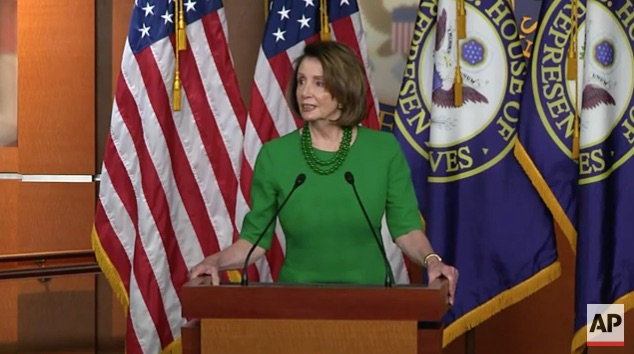
Jim Mattis—Despite theatrics, his gesture is NOT about the nation's security. Unless entirely brainwashed by his own propaganda, he knows neither Russia nor China nor Iran represent existential threats to ordinary Americans, only the interests of the ruling 0.00001%, whom he has served all his life. So his gesture is really about choosing the safer career track with the MIC and the Deep State and its minions. He is betting—maybe wrongly—that Trump will soon be gone.
Dateline: 21 December 2018
The current kerfuffle amid the US ruling class shows more clearly than ever that all parties are morally repugnant.
[dropcap]T[/dropcap]he announcement by US President Donald Trump of his decision to withdraw all US troops from Syria—followed by reports that he has ordered a partial withdrawal of US troops from Afghanistan—has unleashed a major crisis within the administration and its relations with the military.Thursday’s resignation of Defense Secretary James Mattis laid bare these sharpening divisions. In his letter to Trump, Mattis wrote, “Because you have the right to have a secretary of defense whose views are better aligned with yours ... I believe it is right for me to step down from my position.”
Mattis’s letter laid out an unconcealed criticism of Trump’s policies, declaring the necessity of being “resolute and unambiguous in our approach to those countries whose strategic interests (sic) are increasingly in tension with ours,” i.e., China and Russia.
The resignation of the former Marine Corps general who required a waiver from Congress because of his appointment as defense secretary so soon after his retirement from the military, came just one day after Trump’s announcement of the Syria withdrawal, which Mattis opposed.

Pelosi smugly bloviating about Trump not playing "by the rules", endangering national security, making Putin happy, and so on. Her pathetic position is providing cues for the Democrats' powerful noise machine, and million of clueless liberaloids who understand little or nothing about today's real issues.
In a Capitol Hill press conference Thursday night, House Democratic leader Nancy Pelosi described herself as “shaken” by the resignation of the ex-general. Appearing with Senate Democratic leader Chuck Schumer, she hailed Mattis as a “patriotic American” and a “voice of stability,” adding, “Our troops look to Secretary Mattis as a leader, and he is now leaving.”
Schumer went on to link the resignation of Mattis to the previous departures of Gen. H.R. McMaster, Trump’s former national security adviser, and Gen. John Kelly, his chief of staff, describing them as a loss of the forces of “stability” within the administration.
If this is the kind of “stability” you are looking for, you can’t find anything better than a military dictatorship.
The Democratic congressional leadership’s reaction sums up the nature of the divisions within Washington and the US ruling establishment. The Democrats’ opposition to Trump is driven by US imperialism’s global interests and has nothing to do with the conditions confronting the working class, the overwhelming majority of the US population.
Trump’s announcement of the Syrian troop withdrawal provoked an extraordinary backlash from the leadership of both his own Republican Party and the Democrats, as well as from the major media and state-connected Washington think tanks.

Lindsey Graham—the warmongering jellyfish from South Carolina could be counted on to pull his hair over Trump's move. The military industrial complex could not find a more dedicated servant.
Democratic Senators Bob Menendez and Jack Reed, the ranking members of the Senate’s foreign affairs and armed services committees, respectively, joined with the leading Republican critic of Trump’s withdrawal decision, Senator Lindsey Graham, for a Capitol Hill press conference Thursday, announcing a bipartisan drive to pass a Senate resolution demanding that Trump “reverse course” and ensure that any withdrawal from Syria will be based on “conditions on the ground.”
Major broadcast media outlets have been overwhelmingly critical of the withdrawal decision, bringing on former generals and intelligence figures like ex-CIA director John Brennan to denounce it as a capitulation to Russia, Iran and the Syrian government.
The New York Times published an editorial Thursday invoking the authority of Trump’s national security adviser, the maniacal warmonger and international bully, John Bolton, citing his vow to expand the role of US troops in Syria to confront Iran.
It criticized Trump for having “overruled Mr. Bolton and the rest of his national security team.” His decision, the newspaper of record of what once passed for American liberalism, argued, had “sowed new uncertainty about America’s commitment to the Middle East, its willingness to be a global leader and Mr. Trump’s role as commander in chief. Soldiers have a duty to follow their leader and carry out lawful orders. But success depends on trusting that the leader knows what he’s doing and where he’s going.”
It went on to accuse Trump of harming “morale” and risking “getting American soldiers killed or wounded for objectives their commanders had already abandoned.”
Suggesting that Trump made the announcement to divert public attention from the anti-Russia campaign, the Times concluded, “That would be the worst rationale for a commander in chief sworn to protect the nation and to honor the men and women who serve in uniform.”
Under conditions in which his White House is under mounting political and legal siege connected to the Mueller investigation and the conviction and sentencing of past aides and associates, the timing of the Syria announcement may well have been driven by Trump’s calculation that a troop withdrawal would be viewed favorably by the majority of the US population.
In response to Graham’s heated denunciations of the decision, Trump tweeted, “So hard to believe that Lindsey Graham would be against saving soldier lives & billions of $$$. Why are we fighting for our enemy, Syria, by staying & killing ISIS for them, Russia, Iran & other locals? Time to focus on our Country & bring our youth back home where they belong!”
However cynical Trump’s motives, there is no question that there is immense popular hostility to the never-ending US wars in the Middle East.
[dropcap]T[/dropcap]hose denouncing the withdrawal announcement do not even attempt to make a case to the population for the continuation of the US intervention, which is illegal both under US and international law. Their entire appeal is pitched to the American ruling establishment and, above all, to the vast US military and intelligence apparatus.There was a similar appeal to the military in an op-ed by Washington Post foreign affairs columnist David Ignatius, a dependable mouthpiece for the CIA and the Pentagon, who warned that Trump’s troop withdrawal would create a “vacuum that will be filled by one of a series of bad actors—Iran, Russia, Turkey, Islamic extremists, the Syrian regime—take your pick, they're all dangerous for American interests in the Middle East.”
He argues that the US military presence had “stabilized northeast Syria; it blocked Iranian expansion; it checked Russian hegemony; it gave the US some bargaining leverage for an eventual political settlement in Syria.”

WAPO's Ignatius: Media scum of the most fetid sort. These are the men who stoke the flames of war.
This “bargaining leverage” was based upon the US military’s use of special forces troops and Kurdish militia proxy forces to lay hold of one third of Syria’s national territory, including oil and natural gas fields that are vital to providing the resources for reconstructing a country devastated by more than seven years of a US-orchestrated war for regime-change.
Invoking his visit to US bases in Syria earlier this year, Ignatius writes, “It's hard to describe the competence of American troops in Syria without sounding corny. Suffice it to say that they found a way to project American power with maximum damage to the enemy and minimum cost for America.”
This “maximum damage” can be seen in the rubble of Raqqa, which was largely razed to the ground by US bombs and shells. According to the monitoring group Airwars, nearly 30,000 Syrians have been reported killed as a result of US bombardments, with tens of thousands more maimed.
This slaughter has been justified in the name of a war against ISIS (Islamic State of Iraq and Syria), which was itself the product of the US war of aggression against Iraq, which claimed roughly a million lives and demolished an entire society. ISIS was further nurtured through the subsequent wars for regime-change in Libya and Syria, where Washington armed and supported the very same Islamist militias that it subsequently claimed to be fighting.
The bitter debate in Washington is driven by rival factions within the ruling class that are equally rapacious and bloodthirsty, determined to prepare for global war to advance the interests of a crisis-ridden American capitalist order against its major rivals, China and Russia, while divided over tactics in terms of how to pursue these aims in the Middle East and elsewhere.
This conflict unfolds in the absence of a mass antiwar movement in the United States and internationally, which is due in large measure to the role played by various pseudo-left organizations, from the New Anti-capitalist Party in France to the International Socialist Organization in the US and the Left Party in Germany. Reflecting privileged layers of the middle class whose social interests are bound up with those of imperialism, all of them have sought to justify the imperialist intervention by the US and its allies in Syria based upon phony claims that CIA-backed Islamist militias are the champions of a democratic “revolution” and by waving the discredited flag of “human rights” imperialism.
There are immense dangers contained in the deepening crisis of the Trump administration and the appeals by the Democrats to the military. At the same time, popular antiwar sentiment is growing and will inevitably take on active forms, joining with the escalation of the class struggle and the rising opposition within the working class to austerity and the destruction of democratic rights.
The political warfare in Washington over US troops in Syria is bound up with an eruption of US and world imperialism that threatens to destroy human civilization. It can be prevented only by the revolutionary mobilization of the international working class to put an end to capitalism.
—Bill Van Auken

This work is licensed under a Creative Commons Attribution-NonCommercial 4.0 International License
![]()
[premium_newsticker id=”154171″]
Revolutionary wisdom







